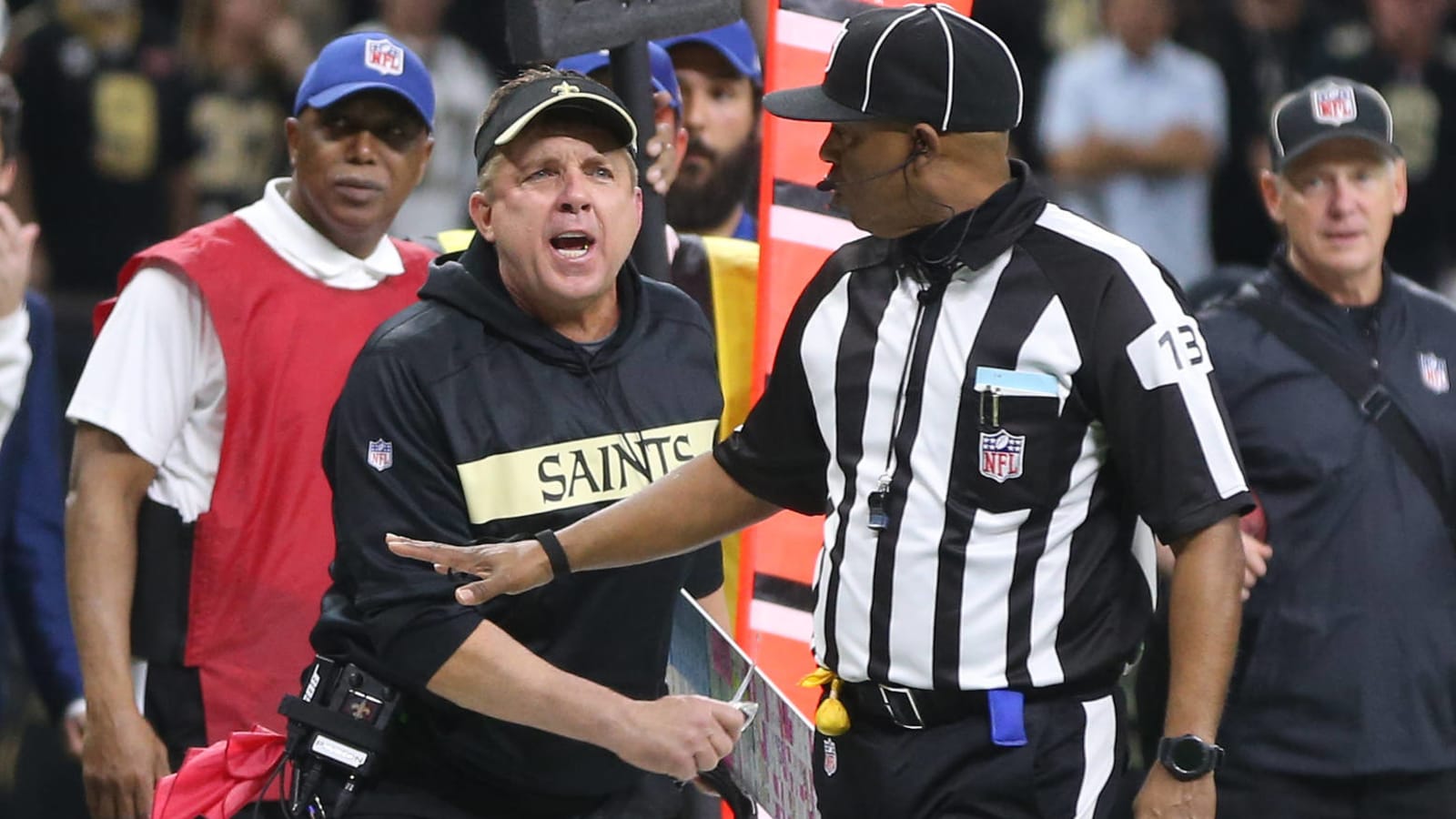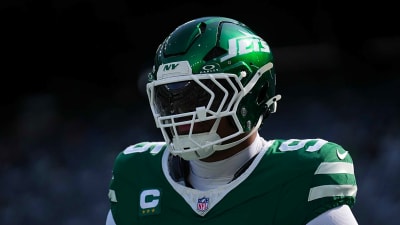
Does replay make officiating more objective or just chaotic in a different way?
What drives people to watch sports likely varies somewhat depending on who is asked. A common throughline is the idea that sports promises competition with a clear outcome. Life is hopelessly complicated and who gets ahead is often determined by a skein of factors, some not always readily apparent. Sports offers a simplification — someone wins because they’ve performed better at a specific skill set than their opponent. The superior team or individual might not always triumph, but whoever played better that day theoretically should.
We’ve all watched enough sports to know that doesn’t always happen. Sometimes that’s the result of bad calls or bad non-calls. The victims of some of these situations will never let you forget about it.
— New Orleans Saints (@Saints) May 4, 2019
For context, the Saints tweeted this out as officials at the Kentucky Derby, through the use of video replay, disqualified Maximum Security for interfering with other horses during the race’s final turn. Country House was named the winner. The Saints, of course, were denied a video review of an uncalled pass interference penalty that, if enforced, most likely would have sent them to the Super Bowl instead of the Rams.
The point of replay is to minimize the sometimes arbitrary nature of how rules can be enforced in real time. In theory, it gets sports closer to an idea of objectivity. But the way rules are written, never quite perfectly calibrated for every situation, there's often going to be more personal judgment to their application than the antiseptic notion of technological perfection suggests. Basically, you're trading one type of chaos for another that carries with it the illusion of order. Replay wasn't new to the Derby — it just hadn't been used to determine the winner of the sport’s biggest race. It's clear Maximum Security breached protocol to some degree Saturday, but it's also a reasonable stance to believe he was still the fastest horse that day.
Most facets of culture have bought into the notion that only tech can save us from the limitations of human frailty. Corporeality remains at the core of sports itself — at least all non-BattleBots related events — but increasingly we’ve turned the officiating of it over to technology. And why not? The vision and memories of machines are infallible. The problem is, the rules themselves are still the product of humans, fallible folks we are. Technology proved Maximum Security violated a rule. Technology, at least how it was applied Saturday, can’t determine that the violation was actually enough to change the outcome.
The NFL, like all major sports, is trending toward more replay. Prominent figures like Bill Belichick would prefer that every play, and even penalties themselves, be subject to replay. That means the experience of watching the sport is going to be increasingly like how this year’s Derby ended: watching one result play out, only to have it upended by a surgical examination of procedure. It posits a broader question: What do we want out of sports — a rigid conformity to process or a more messy but easily digestible spectacle?
Naturally, this being a buzzed-about thing that happened on TV, the president felt compelled to weigh in on social media.
The Kentucky Derby decision was not a good one. It was a rough & tumble race on a wet and sloppy track, actually, a beautiful thing to watch. Only in these days of political correctness could such an overturn occur. The best horse did NOT win the Kentucky Derby - not even close!
— Donald J. Trump (@realDonaldTrump) May 5, 2019
How video replay relates to political correctness is anyone’s guess. Most likely, this is just an empty invocation of a hot-button term intended only to provoke. It's fair to say that replay broadly represents facts and logic. While those are useful and necessarily in matters of governance, it's fair to debate whether something is lost in the sometimes obsessive pursuit of absolute accuracy in sports officiating.
That Trump feels this is a viable way to win support does show that there is dissatisfaction with how replay hampers the sports-watching experience. It drags games out. It ruins the flow of a broadcast. Sometimes the use of replay can feel more like an attempt to nitpick a great play for a minor technical problem than whether it was valid in the first place.
Gambling is already a huge part of both the culture of horse racing and football, and only bound to become more so with the Supreme Court’s 2018 ruling that allows for legalization of sports betting on the state level. In many ways, gambling only exacerbates the need for replay. After all, the idea that a player got away with a slight bending of the rules becomes considerably harder for a viewer to stomach when money is on the line. But when replay delves into judgment calls, the gray area of whether a player has meaningfully violated a rule is sometimes replaced by the gray area of whether an official is overstepping their bounds.
Somehow for many fans a player getting away with an infraction feels like more of an injustice than the league itself getting to set the terms of victory, sometimes on the fly. Perhaps we should start asking why that is.
More must-reads:
- Tom Brady made a $100K bet with Danny Amendola after Kentucky Derby
- Watch: Legendary musician Jimmy Buffett trolled NFL refs at New Orleans Jazz Festival
- The '2025 backup NFL quarterbacks' quiz
Breaking News
Trending News
Customize Your Newsletter
 +
+
Get the latest news and rumors, customized to your favorite sports and teams. Emailed daily. Always free!








